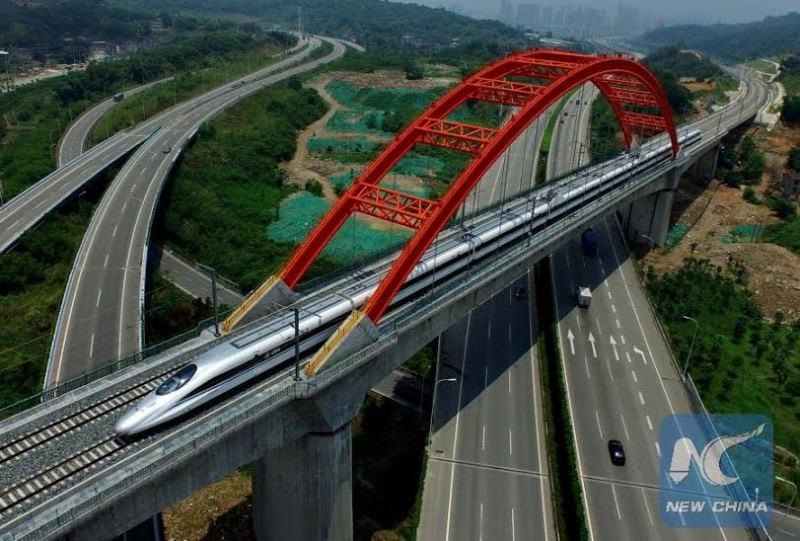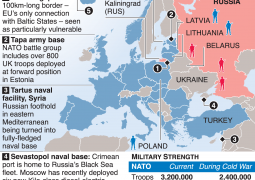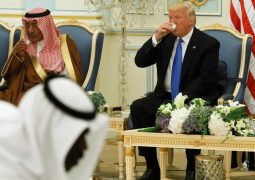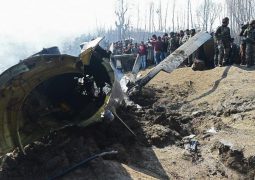China’s clout is growing on the edge of the EU, and the US is worried
North Eastern Asia
39 views 0

Sebastian Shukla and Oren Lieberman
Smederevo, Serbia (CNN)The sprawling steel mill is visible for miles around Smederevo, disgorging plumes of thick black smoke into the Serbian sky. More than 100 years old, the mill is the beating heart of the city, perched on the banks of the Danube River.
That lifeline is now connected to China.
“If the Chinese didn’t buy it, we would have chaos here,” says Ljubisa Stojiljkovic, a resident of Smederevo, where the mill dominates the skyline. “If it weren’t for them, I don’t know how these people would survive.”
The plant struggled in the late 1990s, and US Steel purchased it for $33 million in 2003. Less than a decade later, in the shadow of the global economic crisis, the company sold it to the Serbian government for one dollar.
In 2016, China saw an opening. HBIS Group, or Hesteel Group, a state-run steel manufacturer, bought the mill for a premium of $52 million, and promised tens of millions more in the future. Of the 66,000 people who live in Smederevo, according to the most recent census from 2011, some 5,000 work at the mill, which declined to grant CNN access to the facilities.
It is a small fraction of the ballooning Chinese investment in Serbia, which once hailed itself as one of China’s best friends in Europe. That friendship has only grown tighter. Beijing has poured some $4 billion in investments — largely from state-run firms — into Serbia since 2011, according to data from the US Embassy in Belgrade, roughly equal to American investment in the Western Balkan nation.
In addition, China has pledged another $5 billion in loans and regional infrastructure projects, Deputy Prime Minister Zorana Mihajlovic told Reuters in July. The projects include major upgrades to highways, railroads, and industry.
The United States and Europe have watched as the Chinese footprint in Serbia has grown, shifting Belgrade from its traditional allies in the West to its new friend to the east. On the doorstep of the European Union, Serbia has made it clear that joining the EU is one of its strategic goals, but Belgrade’s recent moves have some questioning the country’s aim.
“We’re trying to support them to move in one direction. They should be careful about where they’re going,” US Ambassador to Serbia Kyle Scott told CNN.
The Chinese firm that has drawn the most scrutiny from the US is Huawei, the world’s largest telecom equipment provider. Huawei is installing surveillance cameras in Belgrade as part of its “Safe City” initiative. And there are plans for Huawei to build a 5G network in Serbia, despite US security concerns about the Chinese firm — concerns which the company has denied.
While the US has banned American companies from using telecoms gear from Huawei, there is no such ban in the European Union. And Germany, Italy, France and the United Kingdom have to varying degrees expressed a desire to work with Huawei on next generation 5G services.
‘Who will pick up the bill?’
Loans to foreign countries from China’s Belt and Road initiative — a huge plan to pump hundreds of billions of dollars into infrastructure and other projects across Europe, Africa and Asia — have the potential to create big debt problems for those who accept them, according to some observers.
“It’s mostly highways that are built with these loans and those never generate the sort of economic stimulus that was expected from the infrastructure — at least that’s the assumption now,” says Jan Weidenfeld, head of Head of European Affairs and Business Strategy at MERICS, a Berlin-based think tank for contemporary and practical research into China.
“There’s a question of how fiscally sound are all these loans? If they’re not able to repay, who will pick up the bill? Will it be EU taxpayers or will it indeed mean that China will basically waive some of that debt, but ask for political favors in return?”
One senior administration official from the White House was skeptical of the Chinese investment in the steel mill Smederevo, which struggled for years to turn a profit.
“I think it’s often perceived that this is ‘cheap’ money. I think it’s more accurate to say that this is ‘dumb’ money,” the official told CNN. “This is a project that no one else would touch with a 10-foot pole, but the Chinese are happy to fund it. Maybe you should think through whether or not that’s a good idea.”
Hesteel, the firm that owns the steel mill, did not respond to CNN’s request for comment. Serbian President Alexander Vacic declined CNN’s request for an interview.
China clearly thinks these investments are good ideas, and ones that appear to be working. In a meeting between Chinese President Xi Jinping and President Aleksandar Vučić in April 2019, Xi said: “the establishment of the comprehensive strategic partnership between China and Serbia in 2016, bilateral cooperation in various fields has been advancing steadily. Political mutual trust has been strengthened, and both sides have firmly supported each other’s core interests.”
The US isn’t the only country worried about Chinese investment in Serbia. There is also significant concern coming from the European Union, the largest investor in Serbia and the bloc that the Balkan nation has spent a large part of its most recent history trying to join. As Deputy Premier Ivica Dačić told reporters earlier this year, Serbia’s dealings with China “are not met with enthusiasm in Brussels.”
The European Investment Bank published a report in September 2018 warning that Chinese money could come with major pitfalls, including unsustainable debt and increased dependency on Beijing. The report also said there was a chance that Chinese activities in the region “will not help to reduce the already existing problem of corruption, unlike other financiers that put more emphasis on institutional, environmental and social standards.”
This view was echoed by Agatha Kratz from Rhodium Group, an independent monitor of economic data, who said the EU and US are pushing for good principles for management of economic stability in the region.
“China’s not a signatory to OECD rules, so it doesn’t publish its loan portfolio. If you don’t know how much China lends … you don’t know how much trouble you’re in,” Kratz said, adding that the opaqueness of Chinese loans could hurt efforts to push for reform in the Balkans. “If a player comes in who doesn’t care about this, everyone loses.”
China’s rising influence in Serbia
Economically, Serbia has relied on Europe for the vast majority of its exports, and most of the investment in Serbia comes from Europe.
At the same time, many Serbians have never forgiven the US or Europe for the NATO bombing campaign in 1999 in response to ethnic cleansing in Kosovo. Some buildings destroyed in the campaign remain empty, haunting reminders of the fighting.
More than just a part of Serbian education, they are an element of the Serbian psyche. “It represents a period of time when we saw Serbia suffered without a known cause,” says tour guide Miljan Miljovic, who takes tourists to see the sites. “The victims that died here, they represent the sacrifice of Serbian being.”
One of the targets was the Chinese embassy in Belgrade. The US claimed it was a mistake, an explanation neither Serbia nor China quite believed.
Now, on the site of the former Chinese embassy, Beijing is building its biggest cultural center in Europe. The huge eight-story building will span an area of 6,000 square meters, and will feature four separate zones – a cultural center, embassy apartments, a business reception area and office space.
Outside stands a statue of Confucius, the famed Chinese philosopher. The building stands on the junction of Confucius Street and China-Serbia Friendship Square, where there is a small memorial plaque thanking China for their solidarity with Serbia and honoring those that died in the bombing. Surrounding the plaque is a Chinese flag, and stuck to the corrugated fence, a sticker reads “iron friendship” in Chinese and Serbian.
Yet the building is more than just a former embassy, it is also a tourist destination. Lain around the plaque are flowers brought by Chinese who make a visit to the embassy a pilgrimage.
Song, a Chinese student from Germany, spent his first evening in Belgrade visiting the embassy. “China and Serbia are closer in ideology than people think, we both have the shared communist history,” he said, adding that he was sorry that he didn’t bring any flowers to lay.
Chinese police will soon start patrolling the streets of Belgrade in response to a rise in Chinese tourism, as they have done in other cities like Paris. In this corner of Belgrade, Beijing feels much closer than 4,600 miles away.
A balancing act
Serbia has always tried to balance its politics between the major world powers: Russia, Europe, and the United States. Now that delicate balance includes China as well.
“If you see Serbia economically, you will see that actually Serbia is part of the European economy. Even if still not an EU member, we are much more a part of the European economic value chain,” says Marko Cadez, President of the Chamber of Commerce and Industry of Serbia and a close ally of President Aleksandar Vacić.
But the United States says it has seen a shift in politics.
“As Serbia gets closer to the EU, it is supposed to harmonize its foreign policy with that of the EU,” said US Ambassador Scott. But in recent weeks, Serbia has signalled it may join the Eurasian Economic Union, a Russian-led economic bloc. Brussels has warned Serbia that joining the bloc could complicate its accession to the EU.
Asked who Serbs see as a better friend, Ambassador Scott didn’t hesitate: “Absolutely they would say China, and it doesn’t surprise me. You can see it in the polls. It’s also part of the media environment. You will see that they get 50 positive articles for any neutral article, whereas the West gets about 25 negative articles for any neutral article.”
Vojislav Milenkovic, a retired resident of Smedorov, agreed.
“People do see the Chinese here as saviors,” he said. “We would like them to stay here. If they leave, this would mean disaster for many of us.”
Source :
- Previous Drone strikes knock out half of Saudi oil capacity, 5 million barrels a day
- Next Malaysians have responsibility to uphold unity, says Dr M






















